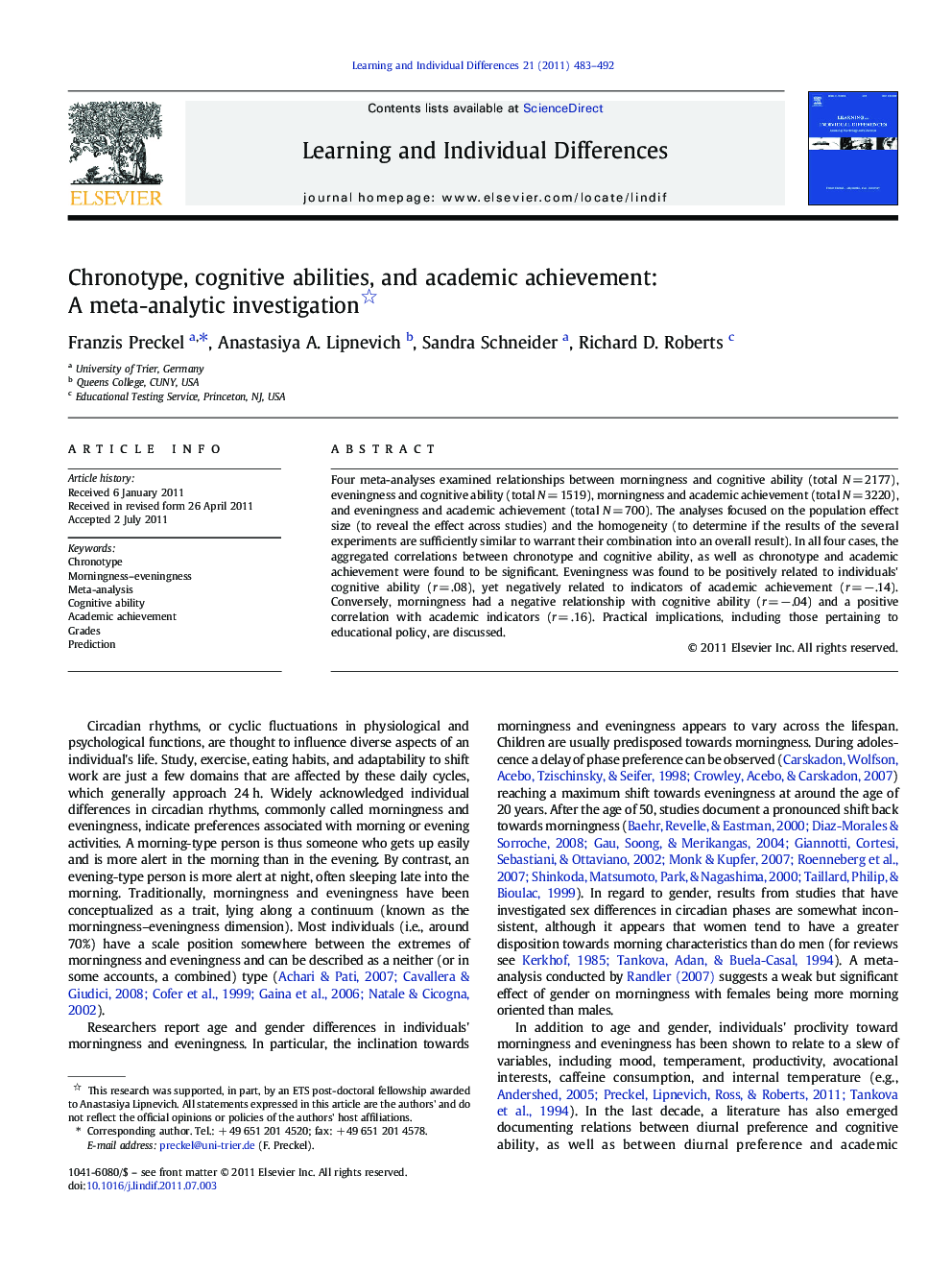| Article ID | Journal | Published Year | Pages | File Type |
|---|---|---|---|---|
| 364796 | Learning and Individual Differences | 2011 | 10 Pages |
Four meta-analyses examined relationships between morningness and cognitive ability (total N = 2177), eveningness and cognitive ability (total N = 1519), morningness and academic achievement (total N = 3220), and eveningness and academic achievement (total N = 700). The analyses focused on the population effect size (to reveal the effect across studies) and the homogeneity (to determine if the results of the several experiments are sufficiently similar to warrant their combination into an overall result). In all four cases, the aggregated correlations between chronotype and cognitive ability, as well as chronotype and academic achievement were found to be significant. Eveningness was found to be positively related to individuals' cognitive ability (r = .08), yet negatively related to indicators of academic achievement (r = −.14). Conversely, morningness had a negative relationship with cognitive ability (r = −.04) and a positive correlation with academic indicators (r = .16). Practical implications, including those pertaining to educational policy, are discussed.
► We examine relationships among chronotype, cognitive ability, and academic achievement. ► We differentiate between morningness and eveningness. ► We apply the method of meta-analysis. ► Chronotype is significantly related to cognitive ability and academic achievement. ► Chronotype may attenuate correlations between cognitive ability and academic achievement.
